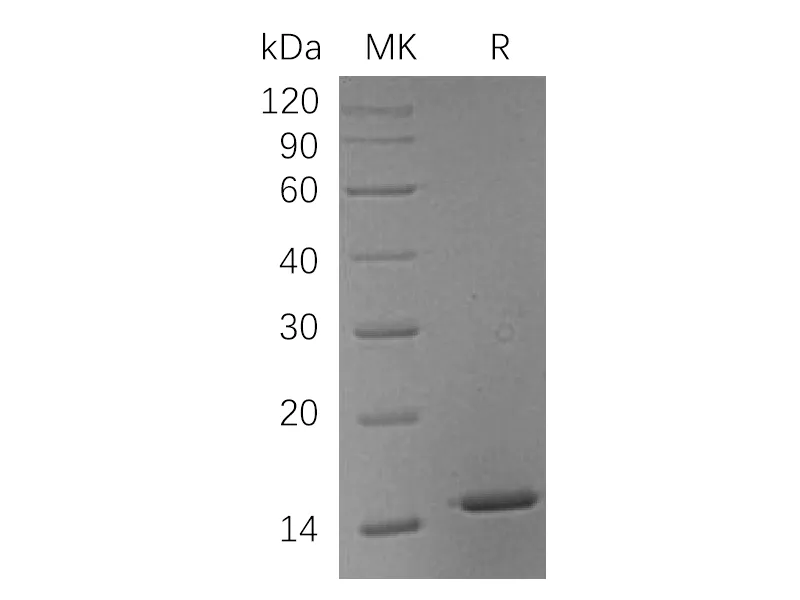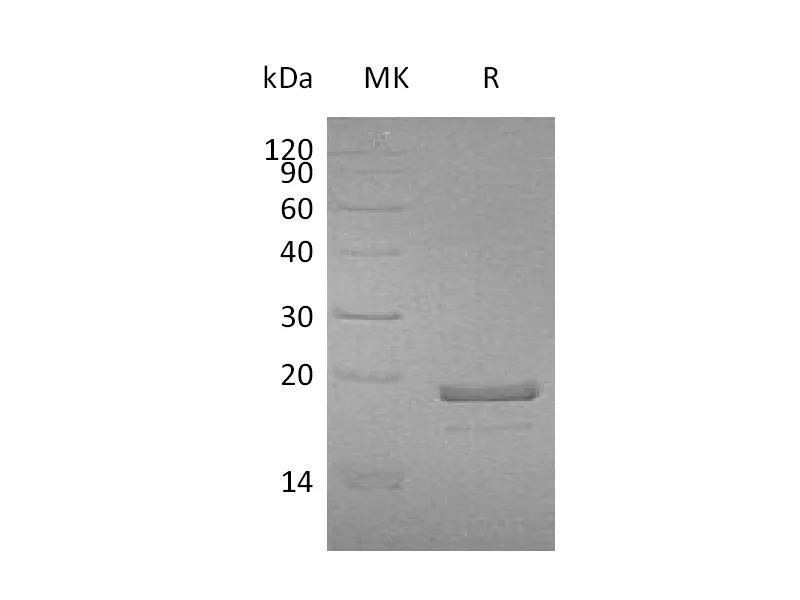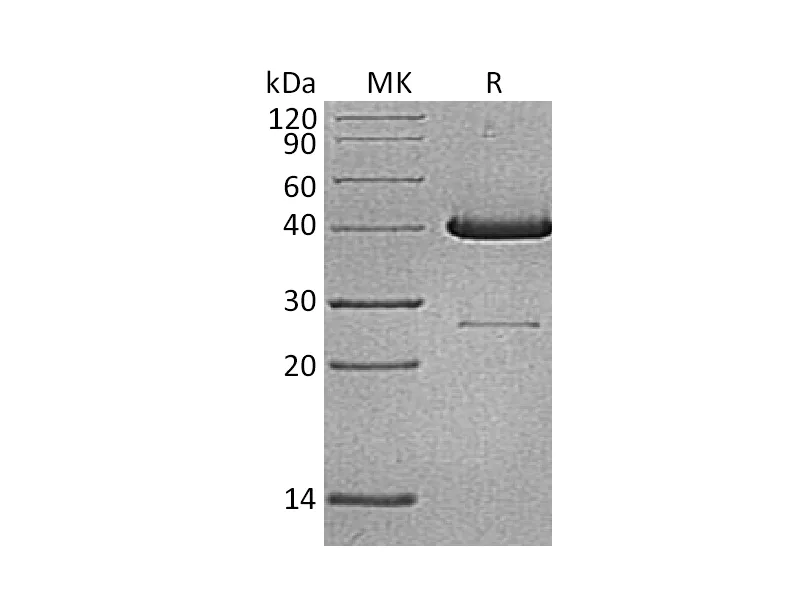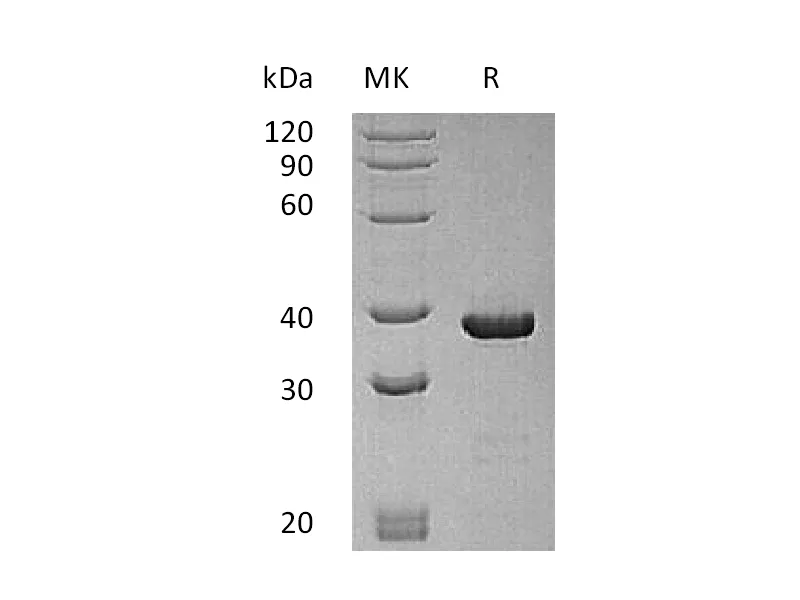| 产品名称 |
Recombinant Mouse C5 |
| 英文名称 |
C5a/Complement Component C5 |
| 纯度 |
Greater than 95% as determined by reducing SDS-PAGE |
| 内毒素 |
<1 EU/µg as determined by LAL test. |
| 蛋白构建 |
Recombinant Mouse Complement Component C5 is produced by our E.coli expression system and the target gene encoding Asn679-Arg755 is expressed. |
| Accession |
P06684 |
| 表达宿主 |
E.coli |
| 种属 |
Mouse |
| 预测分子量 |
9 KDa |
| 制剂 |
Lyophilized from a 0.2 μm filtered solution of 20mM PB, 350mM NaCl, pH 7.5. |
| 运输方式 |
The product is shipped at ambient temperature.Upon receipt, store it immediately at the temperature listed below. |
| 稳定性&储存 |
Store at ≤-70°C, stable for 6 months after receipt.Store at ≤-70°C, stable for 3 months under sterile conditions after opening. Please minimize freeze-thaw cycles. |
| 复溶 |
Always centrifuge tubes before opening.Do not mix by vortex or pipetting.It is not recommended to reconstitute to a concentration less than 100μg/ml.Dissolve the lyophilized protein in distilled water.Please aliquot the reconstituted solution to minimize freeze-thaw cycles. |
| 分子别名 |
| Complement C5; Hemolytic Complement; C5; Hc |
| 背景介绍 |
| Mouse Complement C5 (C5a) is a glycoprotein that belongs to a family of structurally and functionally related proteins known as anaphylatoxins. C5a is a 77 amino acid peptide that is created by the C5a convertase proteolytic cleavage of C5 αchain in the classical and alternative complement pathway (C4b2a3b, C3bBb3b). Mouse C5a has fourαhelices, plus three intra-chain disulfide bonds that form a triple loop structure. C5a functions via G-protein coupled receptor (GPCR) (C5aR/CD88). C5a is a potent chemoattractant and anaphylatoxin that acts on all classes of leukocytes and on many other cell types including endothelial, smooth muscle, kidney, liver, and neural cells. It mediates IL-8 release from bronchial epithelial cells. It also triggers an oxidative burst in macrophages and neutrophils, causing release of histamine in basophils and mast cells. C5a anaphylatoxin activity on hepatocytes results indirectly from interaction with nonparenchymal cell via prostanoid secretion. Mouse C5a shares 60% and 82% sequence identity to human and rat C5a, respectively. |
注意事项
本司产品仅用于科研,不用于临床诊断和治疗




